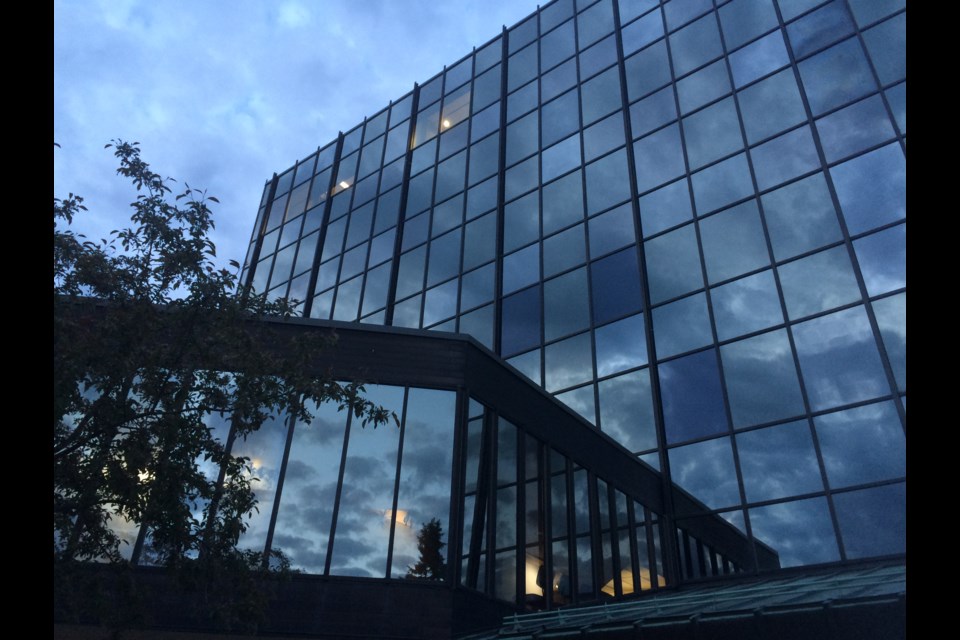The City of North Bay's proposed tax levy increase for 2020is 4.8 per cent.
The levy is sitting at $93,795,441 up of $4,483,219 over 2019..
The breakdown, as provided by the city, shows 1.85 per cent or $1,648,481 from the ABC’s (agencies, boards, and commissions.)
Another 2.31 percent or $2,062,963 is related to infrastructure, including a $500,000 phase-out of the use of reserve funds which went toward a portion of last years’ levy increase.
The remaining 1.58 percent or $1,415,265 is related to various city departments, and an increase to WSIB rates.
“We’re finding the ABC’s very challenging. It may not hit us as hard this year, but it could hit us very hard next year, especially with the Health Unit and the funding changes coming from the province for them,” explained Deputy Mayor and budget chief Tanya Vrebosch.
“And that is going to have a huge impact on the city. We tried to mitigate that a little bit this year knowing there is going to be a very heavy increase next year.”
Vrebosch says realistically the city can’t afford a zero increase.
“We’ve seen the impact of that in the past. About eight years ago we saw an average of under two per cent. And we were in trouble when it came to our capital budget.”
The budget chief is calling it a “status quo” budget.
“There will not be any service cuts. It is a realistic and responsible budget. I feel it is a budget really geared towards creating a strong and healthy community,” said Vrebosch.
“We’re doing internal reviews to find more efficiencies within our organization. We’re also investing in growth. You can see the benefits in that. We’re seeing the highest number of building permits being issued, and we just started our term. It has only been a few months since we passed our last budget. That growth will eventually help grow the city and that is the way we’re going to reduce taxes.
The city did get a financial boost from the province.
“We were very fortunate to have the funding from OMPS (Ontario Municipal Partnership Fund) come in at just under $900,000.”
When the water, wastewater operating budget was tabled by council at its last meeting, Councillor Mike Anthony suggested using up some of the reserves.
“I would like to use some of that to lower the water rates and give you a break,” said Anthony.
Vrebosch disagrees, pointing to the general operating budget as an example. It explains where the $750,000 reserve is.
“We have about $750,000 worth of reserves we’re still weaning ourselves from, and that is what got us to under two per cent in previous years because we were using artificial money that wasn’t a sustainable fund. Eventually, that money runs out and your spending goes back up. So, it is not a responsible way to use your reserves. Reserves are there to be used for emergencies, one-time occurrences, not to help reduce an operating budget,” said Vrebosch.
“The other thing is we have capital projects coming down the pipe in the next couple of years that we are going to need those reserves for, and then some.”
Vrebosch says there are “great things” happening in the budget with the Growth Community Improvement Plan.
“We’re actually bundling some of the ones that we had. We had one for the airport industrial park, we had one for the downtown, we had a few of them. We have some money in there to help whether it is public art, whether it is housing that may not be in the best shape in the downtown area, where they could possibly apply for a grant to get it back into shape or if they had to demolish it,” said Vrebosch.
“We’re really trying to focus on the downtown. We’ve put more money into our Growth Community Improvement Plan for businesses and that has been very successful for us. We’re seeing lots of businesses take advantage of it. We have a lot of confidence in the downtown. It needs a little pick me up right now and some of the suggestions put forward to the housing component is a big part of it.”
She says there are incentives to not only encourage people to live in the downtown area but move businesses there as well.
“That is where they’re looking at not charging for parking after 4:30 p.m., having an incentive for brand new businesses, or brand-new tenants in the downtown area regarding parking passes. We want to bring people to live in the downtown, but it isn’t easy when you have a car. Where do you park? We want more businesses to go downtown but if you have to have all your staff paying for parking, it is a deterrent.”
From a health perspective, the city is bringing the skating oval back to Lee Park.
“We’re getting really, really good feedback from the citizens. I didn’t really realize how much people missed it.”
Exactly how much ratepayers will see their taxes go up won’t be known until after rates and ratios are done, which will happen after the budget is passed.
The city must also find a way to pay for Cassellholme and the new community centre over the next 10 to 20 years.
Vrebosch credits council with working well together to arrive at this budget.
“Everyone has had some great ideas. Everyone has brought very different perspectives to the table. We feel that we’ve incorporated the priorities we’ve heard from the public, as well as from council., and we think this is a budget that will help continue to grow the city.”
Once tabled, the budget will be available for public comments, and is likely to be passed by council on December 10.



